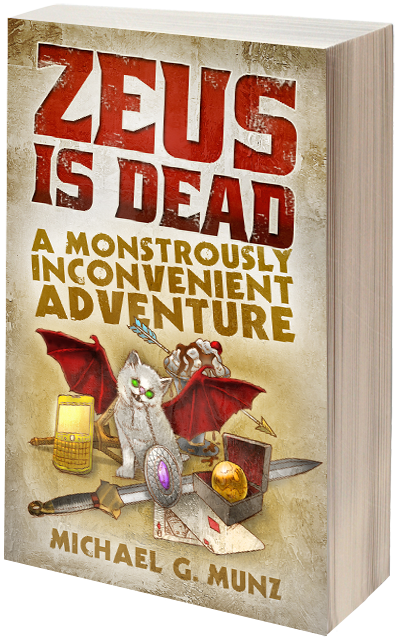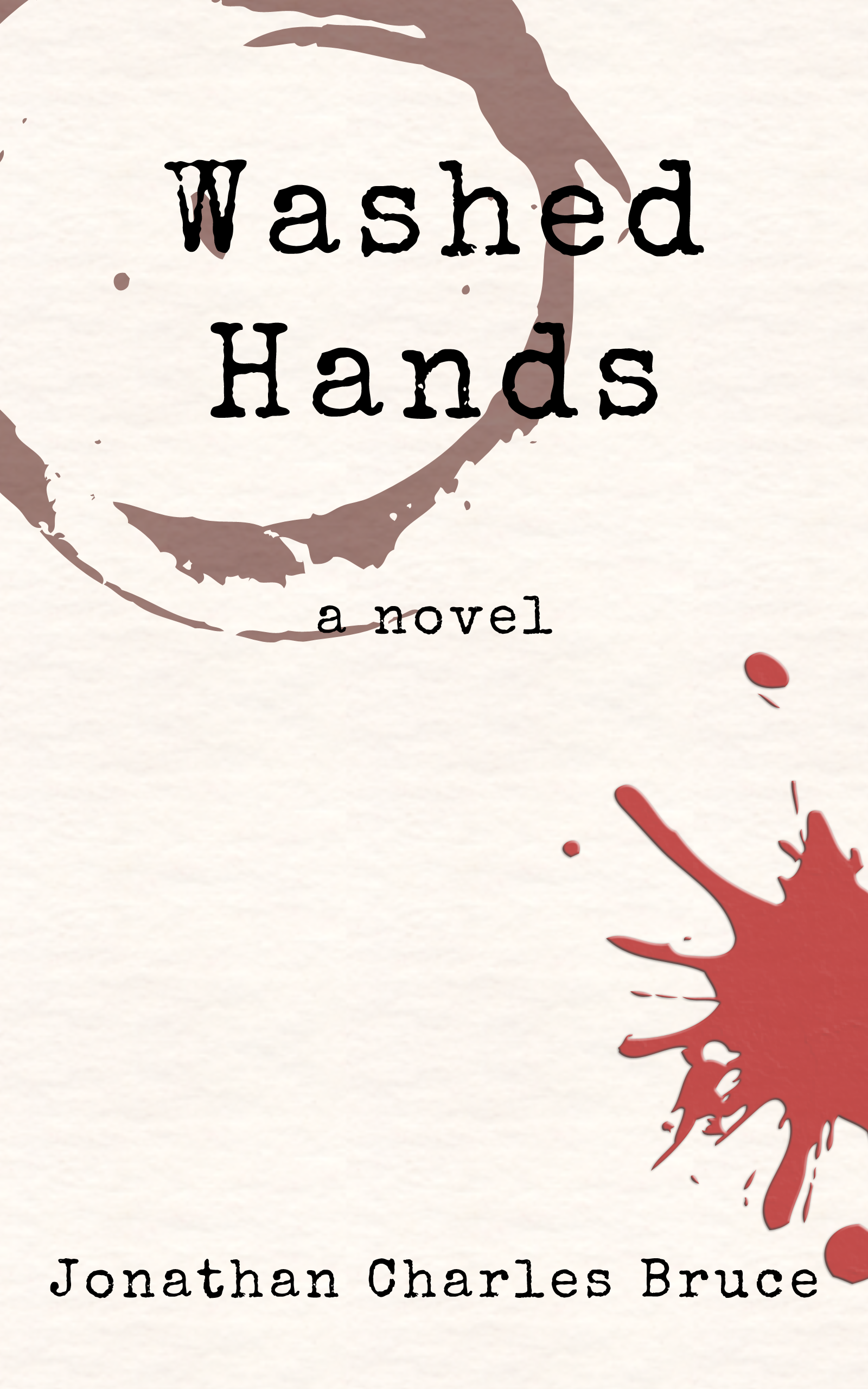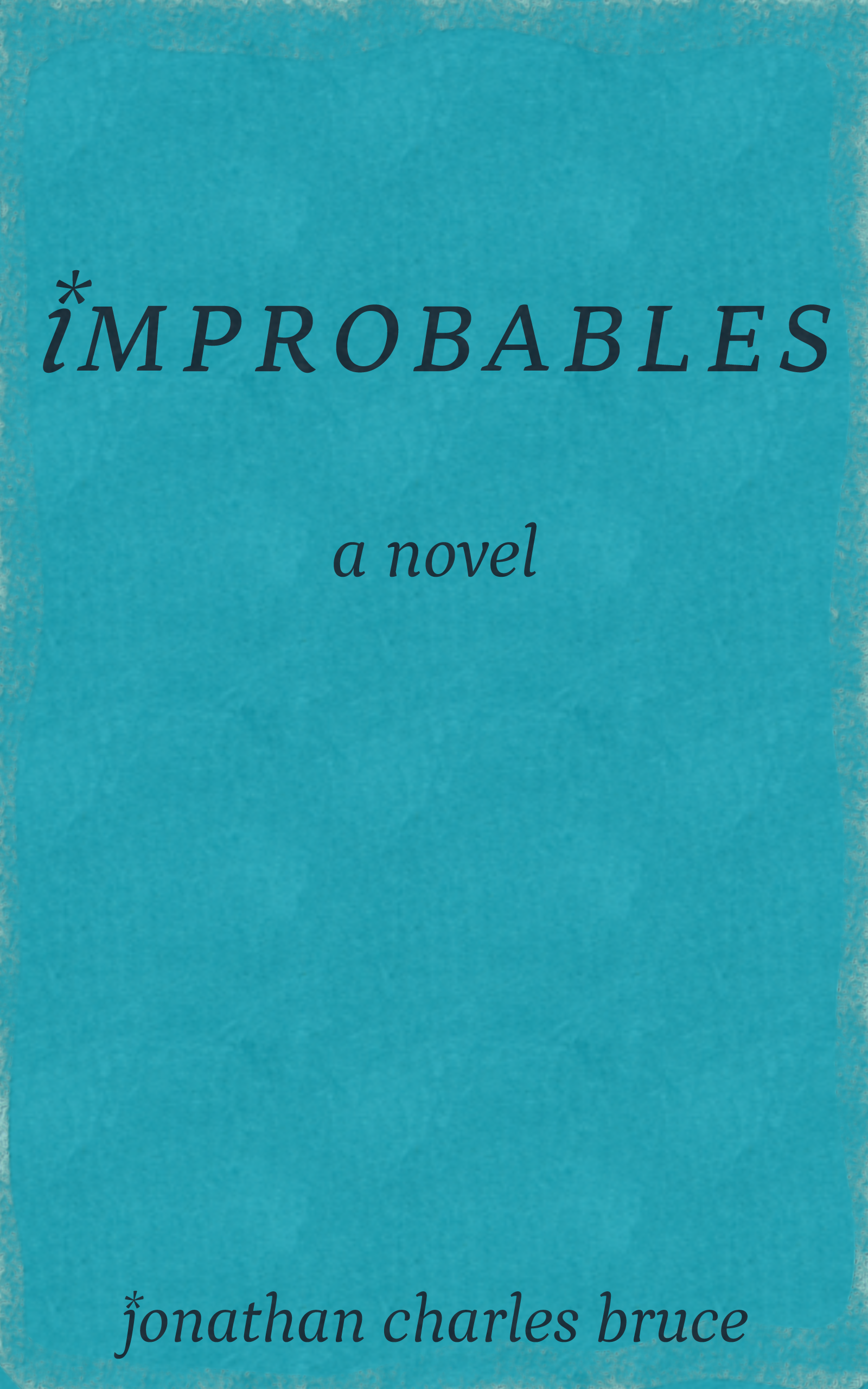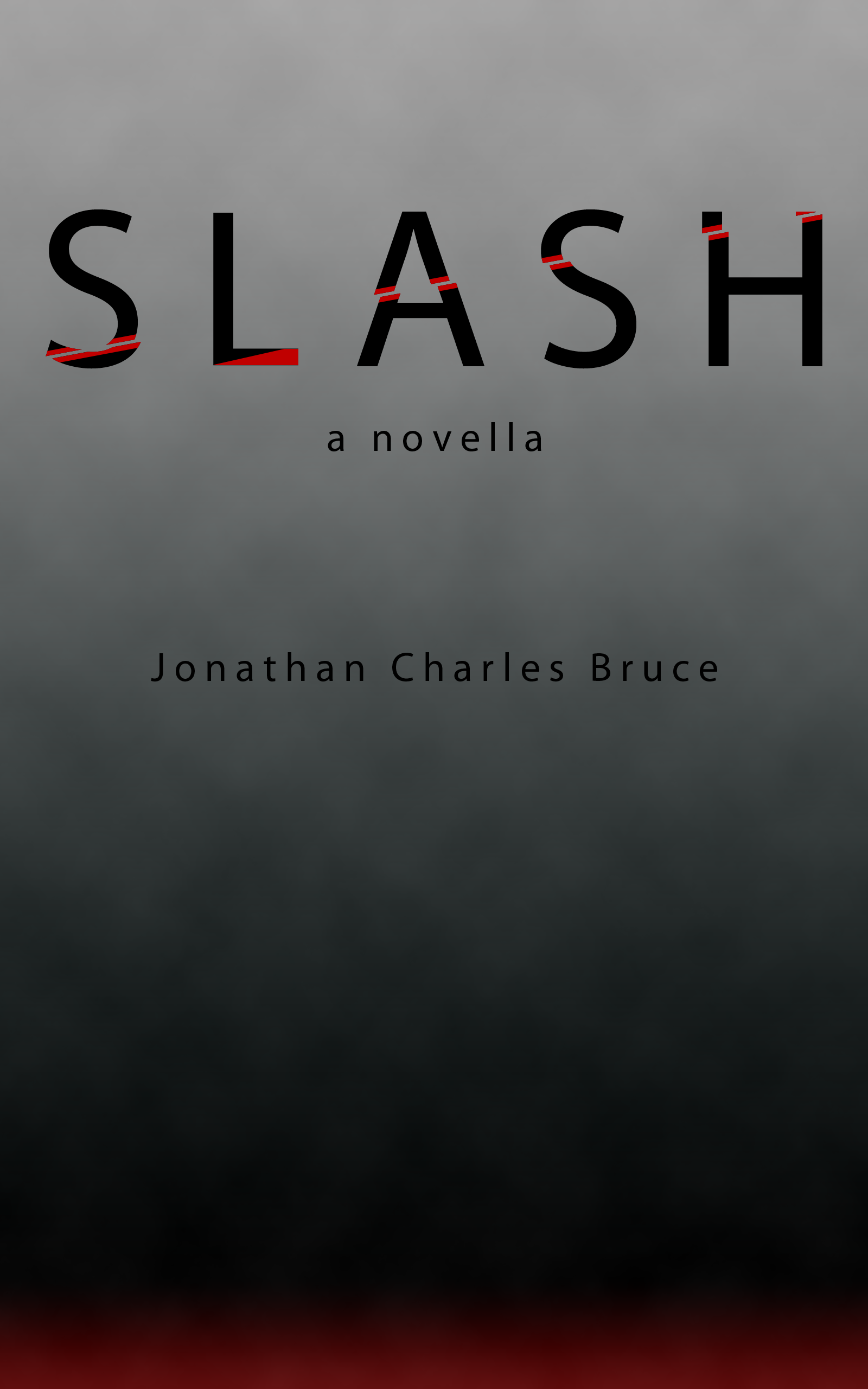Zeus is Dead Review
 Zeus is Dead: A Monstrously Inconvenient Adventure
Zeus is Dead: A Monstrously Inconvenient Adventure
by Michael G. Munz
Website
Sample Chapter • JCB • Munz
BUY!
Amazon
Barnes and Noble
iTunes
I am always a little wary when something bills itself as comedy, namely because the genre of “comedy” is so damn subjective that it means different things to different people. For instance, some people would say that films by Adam Sandler count as comedy, although I tend to classify them more along the lines of what would happen if you took the taste of NyQuil and somehow projected it on screen for ninety minutes. Other people will look at something like A Confederacy of Dunces as the height of literary comedy, even though I only gave an amused “huh” at points rather than the guffaws I was promised.
And now that I’ve alienated a fair portion of readers, I can get on with the review.
When I approached Michael G. Munz’s Zeus is Dead, I was fully expecting it to be an amusing romp that made me smile but didn’t quite hit the funny bone quite hard enough to make me laugh. What I got was a book that was so densely packed with jokes and self-awareness that it was outright difficult to read more than a few pages without laughing.
So that answers the primary question of ‘is it funny?’ with a big ol’ check mark. But the subsequent question of ‘how is it funny?’ is the sticking point, as my blithering at the start of this post should have alerted you. My friends, it is funny in the same way that Monty Python, Blackadder, and a host of other British comedies are funny. It’s like if you smashed The Hitchhiker’s Guide to the Galaxy together with Greek mythology and read the results.
Did you get that? Well, good. Just because Munz brings the funny doesn’t mean that we have run out of things to talk about.

Just look at this literary badass. LOOK AT HIM.
The scenario is thus: In the distant past, Zeus decided that humanity should largely go unmolested by the gods and their assorted mythological beasties. When Zeus dies (spoilers), the edict of Withdrawal gets lifted and the gods make it a point to get all up in humanity’s business. Of course, there’s more to Zeus’s death than meets the eye, namely in the fact that he was murdered and not everyone on Olympus was in on it. As such, Apollo heads out to discover just what the hell happened, naturally putting him in the sights of the conspirator. Or is it conspirators? Bum-bum-bummmmmm!
But it’s not all super-powered deities sniping at each other and generally being pains in the asses. No, we get a cadre of humans to deal with as well. The first and most important is Tracy, the producer of the television show Monster Slayer wherein a ruggedly attractive knucklehead kills all of the newly spawned beasties the gods have unleashed upon the world (the best of which are flying carnivorous kittens). The other major human character is Leif, a kind of dopey everyman that follows Tracy around like a lost puppy because of Aphrodite’s interference. Tracy (with Leif in tow) sets off on a journey to help Apollo discover just who was responsible for Zeus’s untimely deadening and maybe possibly fix things.
It’s really hard to organize my thoughts on why this book is so good, so I guess I will just go in whatever order that appeals to me. First and foremost is the treatment of Greek myth itself. You see, it bothers me to no end whenever someone tries to make the Greek pantheon out to be anything other than petty, incestuous cretins with broken moral compasses that they are. It’s mythological revisionism, and it’s stupid.
Munz counteracts this by actually making his gods and goddesses people, complete with quirks and failings—you know, just like the Greek myths. This actually sets it up so that the characters in his book actually jibe with the mythological entities, rather than contradict them. In fact, one of the earliest exchanges in the book convinced me that Munz knew his shit when it came to just how to write about the divine:
“Is Hades the devil?” shouted one of the reporters lucky enough to be in attendance.
Hera glared as Poseidon frowned and ordered, “Do not shout questions. My brother is the god of death, not the devil.”
“If I may, Uncle?” Athena spoke, leaning closer to her mic to address the reporter. “In modern times, Hades endures much bad press for being god of the underworld. He is god of precious metals as well, yet mortals see only his connection to death and deem him the devil.”
The thing I love about this is the fact that Munz doesn’t fall into the bullshit, “Well, he’s god of the underworld, so Hades must totes be Satan!” claptrap that so many people do out of what I assume to be a direct desire to annoy me and/or laziness. But even the fact that there’s a press conference gives a lot of depth to the gods themselves, revealing that they do indeed have limitations and aren’t all perfect beings—if they were, they would just give us knowledge that they exist and that would be that.
Which brings me to my next point: the gods are powerful, but fallible. Keeping with the whole “the gods are well-rounded characters” shtick is the fact that the gods, regardless of their individual strengths and weaknesses, are still limited by what they can and can not do. This may seem like a minor point, but it’s vital to understanding that, while a comedy, the dramatic tension that occurs in this book is actually maintained because a good portion of the principle cast can’t just magic away their problems.
As for the human cast, they get to be well-rounded people as well. But that should be a given, so instead we’ll hop on another aspect of the writing: the fact that gods and humans have equal agency that plays to their respective strengths. At one point, Apollo uses his divine connections to seek counsel with the Fates while the human cast attempts to cut off a ne’er-do-well at Dionysus’s casino. Both sides are given something equally important to the plot while also rationally setting up why they must do their particular tasks (Dionysus would recognize Apollo, humans can’t normally approach the Fates).
Perhaps one of the best elements to arise out of Zeus is Dead is the fact that the gods and goddesses have actively guided the world’s affairs since time immemorial and actually behave like it. I can’t stress that enough—it’s utterly refreshing to have Greek gods actually grow through a couple thousand years of human experience rather than remain in some kind of personality-killing limbo where they’re only allowed to have one characteristic (usually bland). To actually have supernatural entities acknowledge and work around modern trends rather than just ignore them in homage to some source material is tremendously appreciated. For instance, the boatman Charon had to ‘hire’ someone so he could go on vacation, just as the Fates end up getting an intern. Little touches like these make reading the book so rewarding.
All of this leads to Zeus is Dead’s world being a well-written, cohesive whole. The two realms of the divine and mundane interact in fluid and believable ways, lending an air of authenticity. The principle antagonists, for instance, are humans who refuse to believe that the Greek gods are the real deal, instead falling back on fundamentalist Christianity and an obstinate refusal to acknowledge that these people with superpowers are exactly who they say they are. At the same time, though, Munz deftly juggles absurdity into the narrative, making a potentially maudlin hero’s journey into something infinitely amusing. Those fundamentalist Christians I mentioned? Yeah, they take on ninja-ing as their means of bringing the gods down.
(Side note: I’m so happy that Munz doesn’t try to do the wishy-washy coexisting religions thing—authors, if you’re going to give us all-powerful deities, it’s okay to have them, you know, not share stage time with others for fear of offending your audience as it more than partially undermines what you’re trying to do)
“Why, it sounds like there’s a lot to love!” you shout to your computer despite reading this in a Starbucks, drawing more attention than you’re comfortable with. “Is there anything that you didn’t like about the book?” you ask quietly, unaware that the baristas have just called the police.
Well, hypothetical person in a coffee shop who is certainly about to be arrested, I did have to wrack my brain to think of something, but an earnest criticism I have is the characterization of Thalia, one of Apollo’s muses. She’s supposed to be kind of hyperactive and chatty, which certainly comes across. The problem is that it comes across a bit too well, and therefore can become wearing in any scene she’s in. But that is a singular quibble in a big, squishy mound of awesome.
And that’s it in a nutshell. I highly recommend you spend your time with Zeus is Dead. It’s not just a funny novel that will provoke more than just a few laughs—it’s a wild adventure told extremely well. It’s damn good reading, and if you don’t enjoy it, then you’re clearly not the kind of riff-raff I wish to associate with.
Attention Readers! Get a free copy of Mythed Connections, the spiritual prequel to Zeus is Dead, by visiting Michael's website here!
< PREVIOUS ENTRY • NEXT ENTRY >
Advice • Fiction • Gaming • General Musings • Reviews





